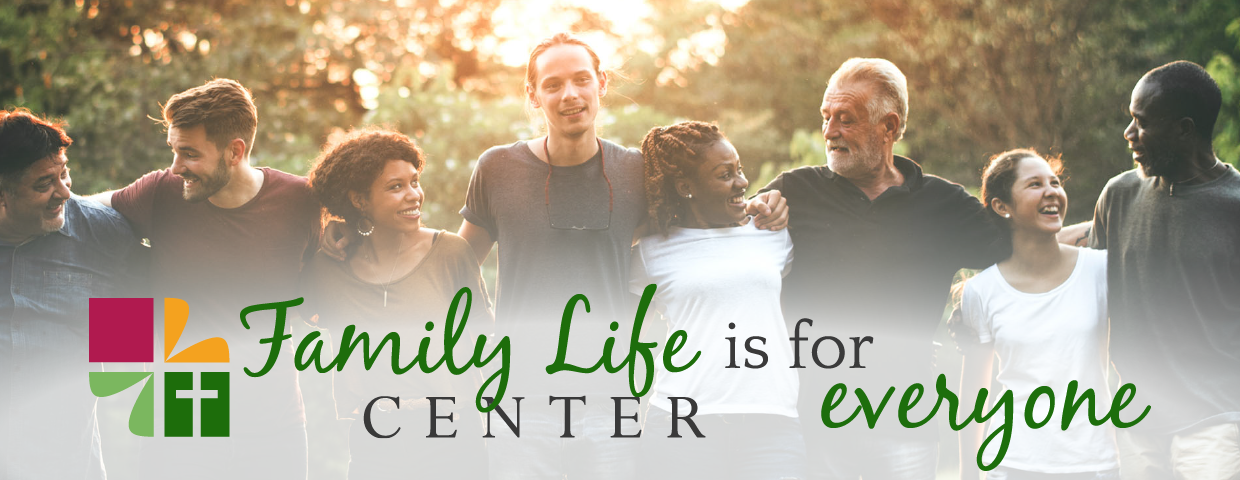
Family Life Center is an outpatient care facility that focuses on bringing the hope of health and wholeness to those whose lives have been devastated by the use of alcohol and other drugs. Family Life Center is a nonprofit treatment program for those with or at risk of drug and alcohol problems. We offer outpatient group and individual counseling services in seven locations in the state of Alabama. Over 25 years of service have given us the experience to share and understand your feelings, but also the skill and knowledge to help.
How Can FLC Help?
Family Life Center is certified by the Alabama Department of Mental Health to provide substance abuse treatment services, including assessments using the Placement Assessment designated by the Alabama Department of Mental Health. We use the Evidence-Based Curriculum to provide psychoeducation and process groups as well as 12-step based model/education. According to Texas Christian University, there are two strong predictors for substance abuse treatment success: The counselor’s connection with the client and a strong educational component for the program.
Who Can FLC Help?
The short answer is “everyone,” through the court system, DHR, court referral, or simply because the person realizes that he or she needs help to address a substance use issue, Family Life Center can help. Anyone seeking our services can call our 24-hour crisis line at 256-888-1234. If you are not sure if you or a loved one needs treatment, you can take our online Addiction Self Assessment to help determine if you need our services.
How Do I Afford Treatment?
Are You Covered Through Insurance?
Family Life Center, Inc. has maintained affordable rates for services. We also accept many insurance programs. If you have health insurance, any of our offices can take your basic information and find out if your insurance offers coverage for our services. If you have Medicaid, services at FLC may be covered, and if you’re eligible for Medicaid, our staff can help you apply. Finally, we offer a sliding fee application that can help a person get treatment at a reduced cost.
Underinsured or Uninsured? We Can Help!
Family Life Center Offers as much assistance as we are able to with grant funding for those in need. We do our best to try to help everyone that comes to us for treatment. Family Life Center, Inc. has access to funding for those who are uninsured or underinsured who would not otherwise be able to access medication-assisted treatment of Opioid Use Disorder and Alcohol Use Disorder, in combination with traditional substance abuse treatment. Click the link to learn more about our Family Life Center Grant Information.
What Happens When You Make the Call?
When a client is referred to Family Life Center, a counselor conducts a comprehensive assessment to determine the appropriate treatment placement. We take into account the severity of addiction and the type of addiction. An individual treatment plan is derived from this assessment to give the client personalized care. Clients are continuously assessed during treatment to determine if progress is being made or adjustments to the treatment plan are necessary.
The clinician will ask questions about your drug use, medical history, mental health issues, medications, legal problems, family problems, employment, living situation, and previous treatment experiences. Be honest so that the staff may assess you appropriately. This will help create an effective plan that meets your needs and greatly increases your chance of success within our program. If placed in one of our programs, you will meet with a staff member to develop a treatment plan. This personalized treatment plan will include goals for your treatment.
How we Work with the Court System
The significance of the CRO program to courts is a coordinated substance abuse program, in conjunction with a proactive court system, aid in the reduction of recidivism among the alcohol and substance use population, the largest population in the court system. Once referred to the CRO program by a judge, the client will undergo an assessment administered by a court referral officer. The officer will screen and evaluate all defendants ordered by the prosecutor or trial courts to participate and to recommend to the court appropriate educational and /or rehabilitative programs for defendants. It is the CRO’s responsibility to monitor the defendant while they complete the program and to report violations to the courts. As well as, collect and report information to the courts concerning results of drug testing. Depending upon their assessment (Level 1, 2, or 3) they can be referred to Family Life Center for Outpatient Treatment.

A Real Testimony of Recovery and How Family Life Center Made a Difference:
A phrase we use often in recovery is “being sick and tired of being sick and tired.” I remember the feeling well. I was sick of using, sick of being unable to stop on my own, and sick of life. I felt like I had hit “rock bottom” and as my disease progressed, I remember talking to a friend about entering outpatient treatment at Family Life Center but my friend told me I could not go because I had to be referred by the court system. That was not true.
I finally made it to Family Life Center through the court system. I wanted to be there but I did not want to talk. My anxiety was at an all-time high because I was walking into a group of people without the use of drugs. The very first thing we did was circle our chairs, read from a meditation book, and share how we related to what we read. I felt like running because, with six days of abstinence, I could still barely form sentences. My mind raced faster than my words. As I looked around the room, I noticed I was not alone. There were a few others in the room in the same shape as me. I stumbled through my words and it was embarrassing but it was better than walking out the door, getting high, and feeling like a total loser.
Vulnerability is a scary thing for all of us. There were so many things I had kept bottled up inside of myself for so many years. I feared I would never be loved if I shared those things. There was a time in a relationship I did share a little only to have it thrown in my face, but not this time. I could finally share those things in that room with the people around me. I was safe. We loved each other. It allowed me to have true community with those around me. To be fully seen and to be loved despite all of the things I thought made me unloveable was powerful.
The activities we did in the group taught me acceptance. I learned to accept where I was at in life, the things that have happened in my life, and who I am. I learned to love myself. If we do not accept who we are and where we are in life, we get stuck. Accepting where you are is the first step in moving forward because you know your starting point. By accepting yourself, you learn to also accept others.
I could go on forever about the things I learned in outpatient treatment. I think my most memorable experience of all is the day we had to write down the good qualities we saw in every individual in the room. Then give it to them. The point was if we could see ourselves through another’s eyes what would we see? As I sat in my chair going through my pieces of paper, I began to cry. The person I used to be before the person I turned into was still there but I was afraid I would never see her again. She had some work to do but she was right where she needed to be. I still have those papers today. I felt like God was reaching out to me and putting his arms around me via total strangers.
There is a quote by Socrates that says: The secret of change is to focus all or your energy, not on fighting the old but building the new. The things I learned in that group room have paid off in all of my relationships. I am still a work in progress. I have people today who hold me accountable and I do the same for them. I have come a long way from the terrified person who could not form sentences that first day. I like to remember her though and share her with others because my counselor taught me that my experience would help someone else know they are not alone.

